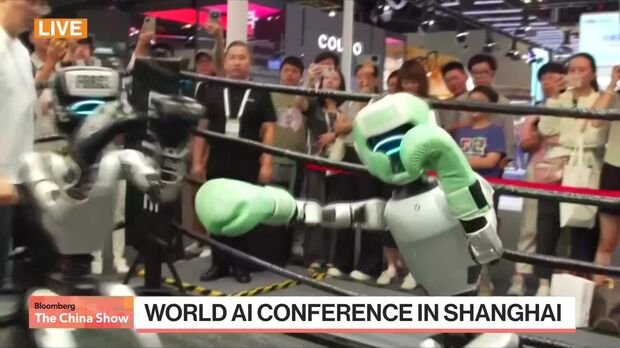During the 2025 World AI Conference in Shanghai, a robot boxing competition by Unitree Robotics drew significant attention. Business leaders emphasized the need for enhanced cooperation in the rapidly evolving field of artificial intelligence to drive global technological progress. At the event’s opening, Harry Shum, formerly of Microsoft, and Eric Schmidt, former Google CEO, engaged in a discussion on global AI competition and collaboration, drawing from their extensive experience in technology.
They highlighted the importance of establishing boundaries for AI development through international cooperation, emphasizing shared values. Schmidt recalled fierce competition among tech giants like Microsoft, Apple, and Google, which ultimately advanced the industry. He advocated for China and the US to collaborate on AI governance, citing historical diplomatic relations as a model for building trust and addressing critical issues such as AI’s potential control over weapons and self-replication.
Schmidt praised China’s recent achievements in AI and underscored the need for US-China cooperation to maintain global stability and ensure human control over AI tools. AI’s transformative impact extends beyond technology, influencing social governance and ethical considerations. The discussion underscored the importance of aligning AI governance with core values, acknowledging existing communication mechanisms between China and the US, while recognizing challenges in enforcing AI compliance with rules.
Schmidt noted the prevalence of open-source AI models in China, contrasting with the US approach. He argued that open-source strategies, like those he championed at Google with Android, foster innovation but also pose security risks. The conversation echoed Henry Kissinger’s earlier concerns about AI’s impact on human dignity and the need for a balanced approach to ensure AI serves humanity.


